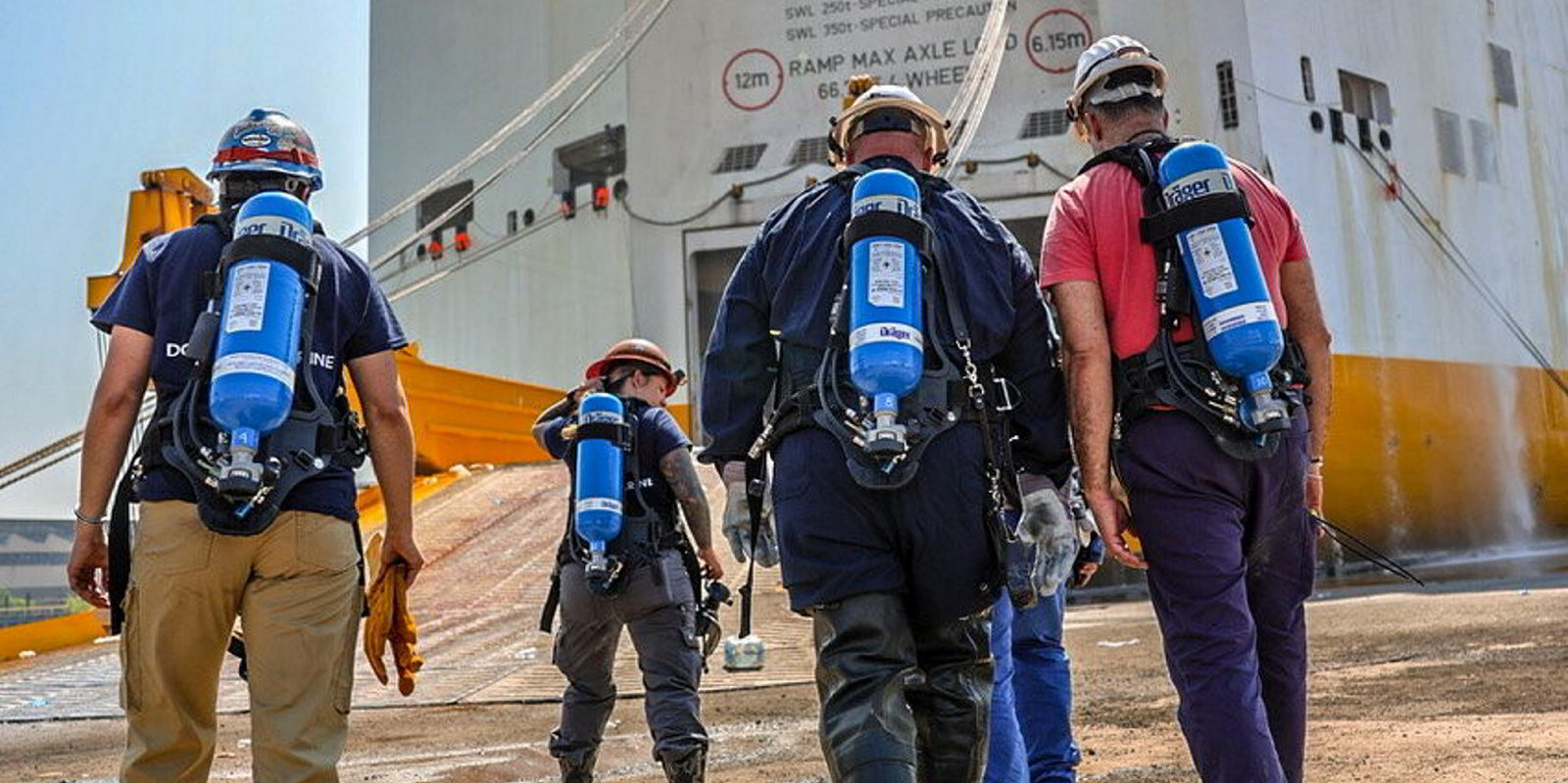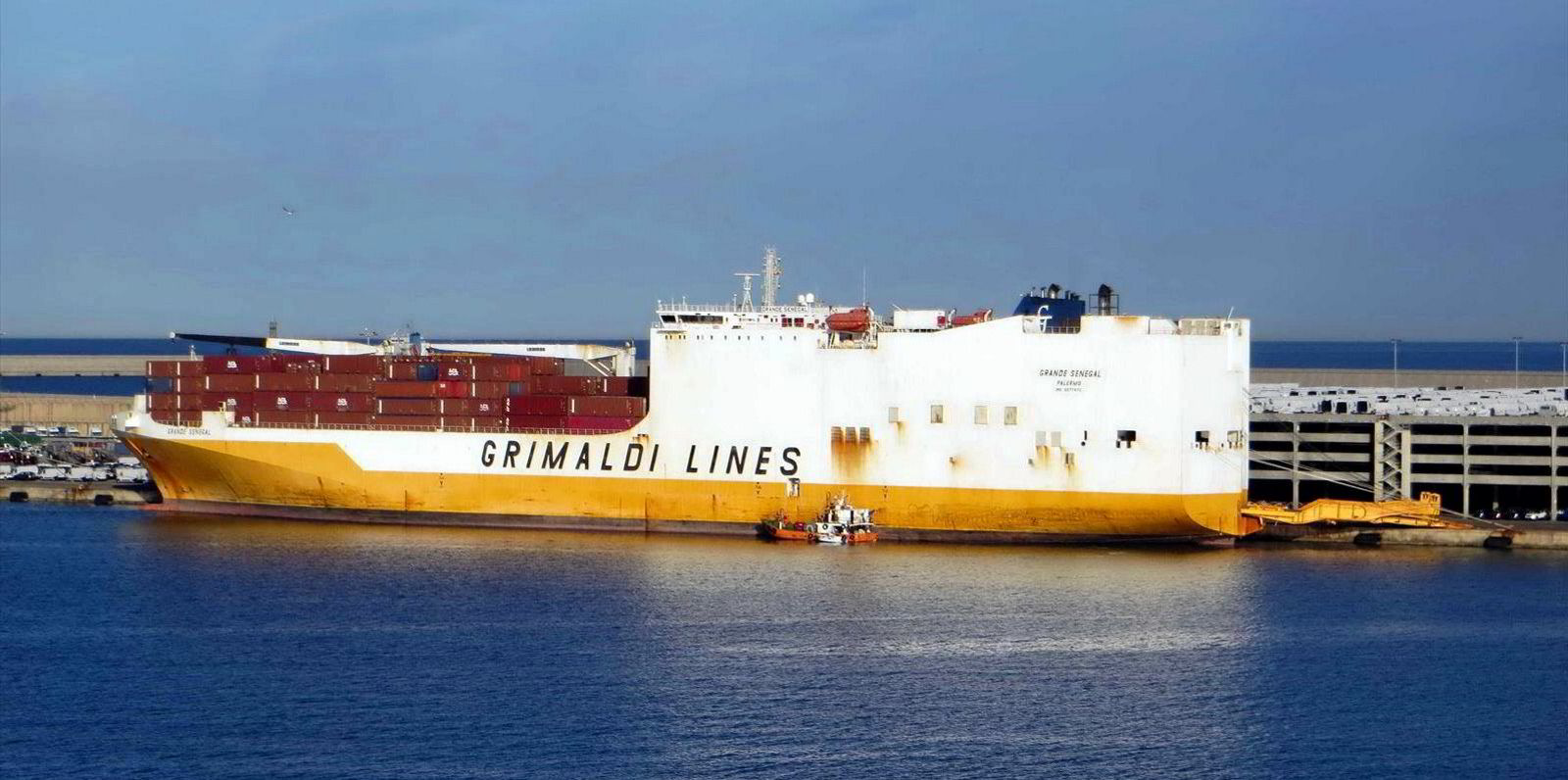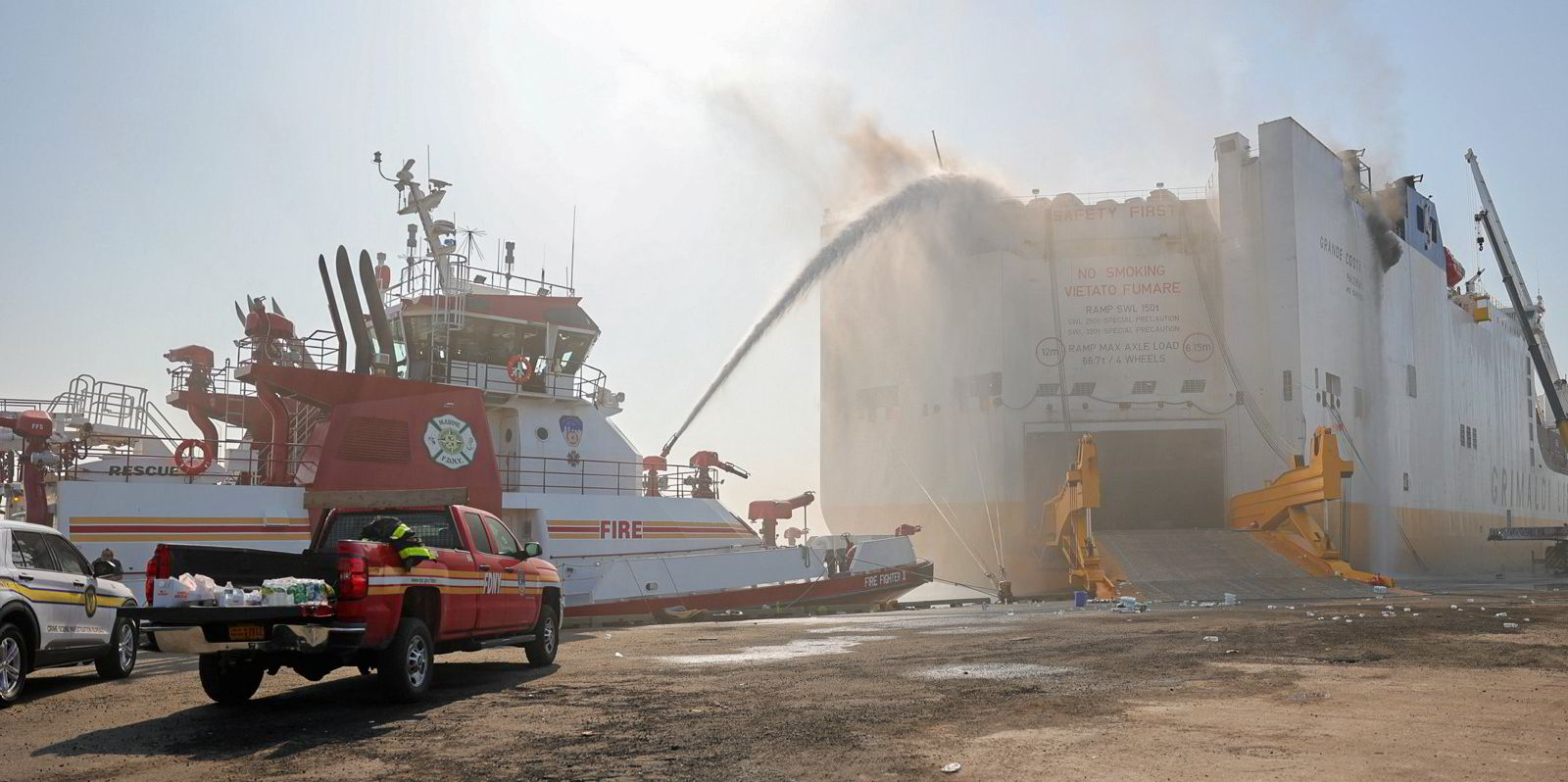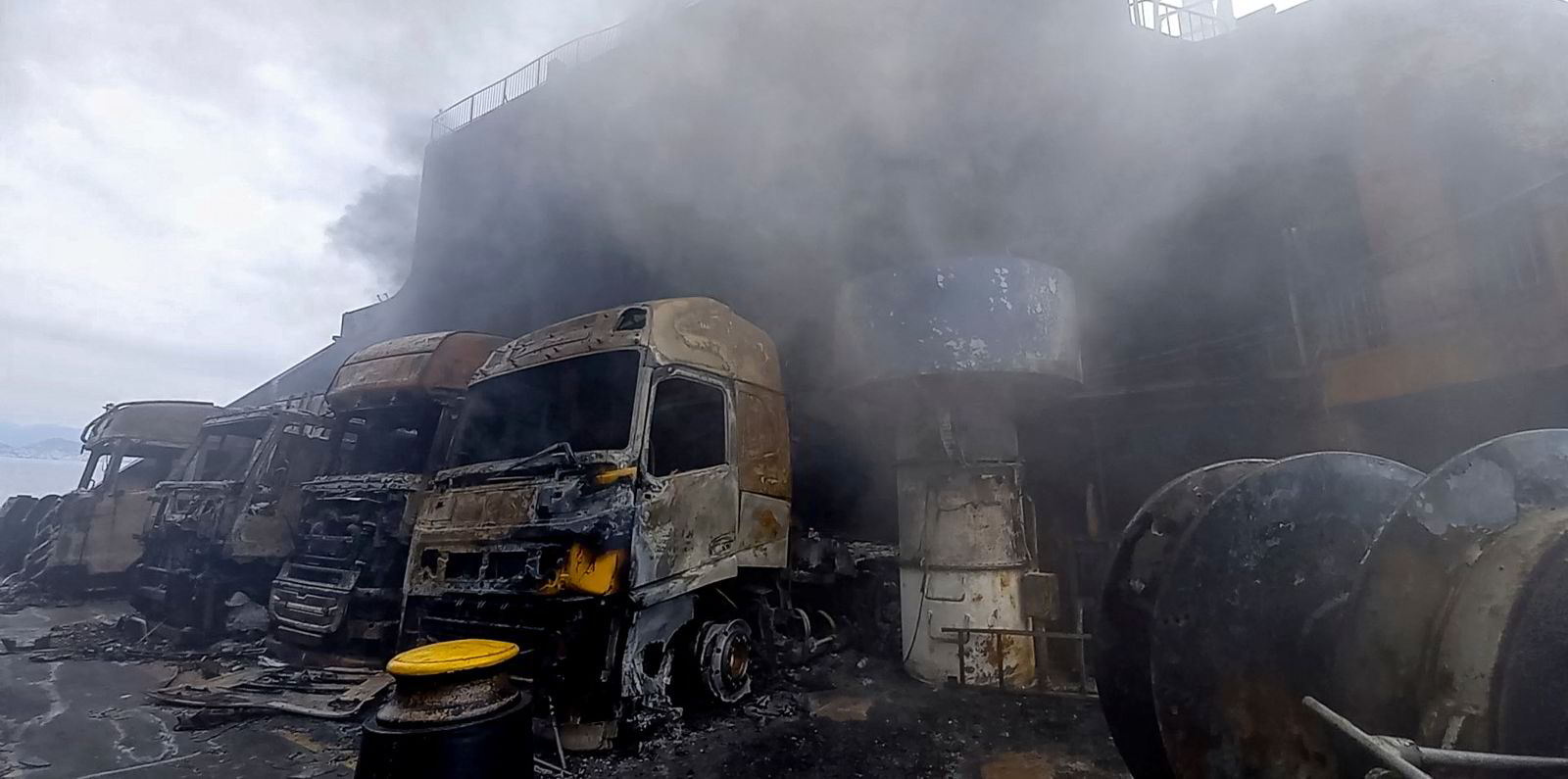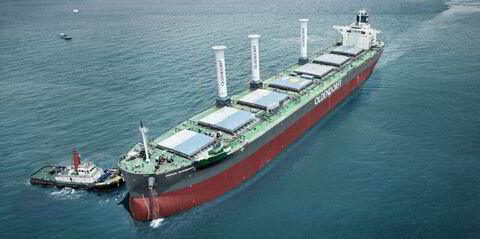The US Coast Guard and fire departments in port cities plan to look at whether further training is needed in battling ship fires, given their frequency on car carriers and their potential to injure and kill responders.
On 5 July, a Grimaldi Group-operated ro-ro caught fire while berthed in Port Newark and taking on 1,200 used, gas-propelled vehicles and 157 containers.
The blaze, which occurred on Grimaldi Deep Sea’s 3,950-lane-metre Grande Costa d’Avorio (built in 2011) and took five days to extinguish, resulted in the death of two Newark firefighters.
The cause of the fire is under investigation while the ship remains at the New Jersey port.
Three years earlier, a car carrier being chartered by Grimaldi Deep Sea — the 4,900-ceu Hoegh Xiamen (built 2012) — caught on fire while off Blount Island in Jacksonville, Florida, on 4 June 2020.
That fire, which was caused by an explosion, resulted in injuries to 11 firefighters who filed a still-active lawsuit against Hoegh Autoliners and Grimaldi Deep Sea in October 2020.
The Coast Guard, which is focused on rescuing lives instead of dousing fires, intends to work with these fire departments to determine if better training is needed to handle vessel fires, in light of the Grimaldi incident.
“This is a question that will be asked throughout the investigation as we work alongside partner agencies to determine the cause of the fire and circumstances surrounding the tragic deaths of two firefighters,” Coast Guard petty officer first class Brandyn Hill told TradeWinds.
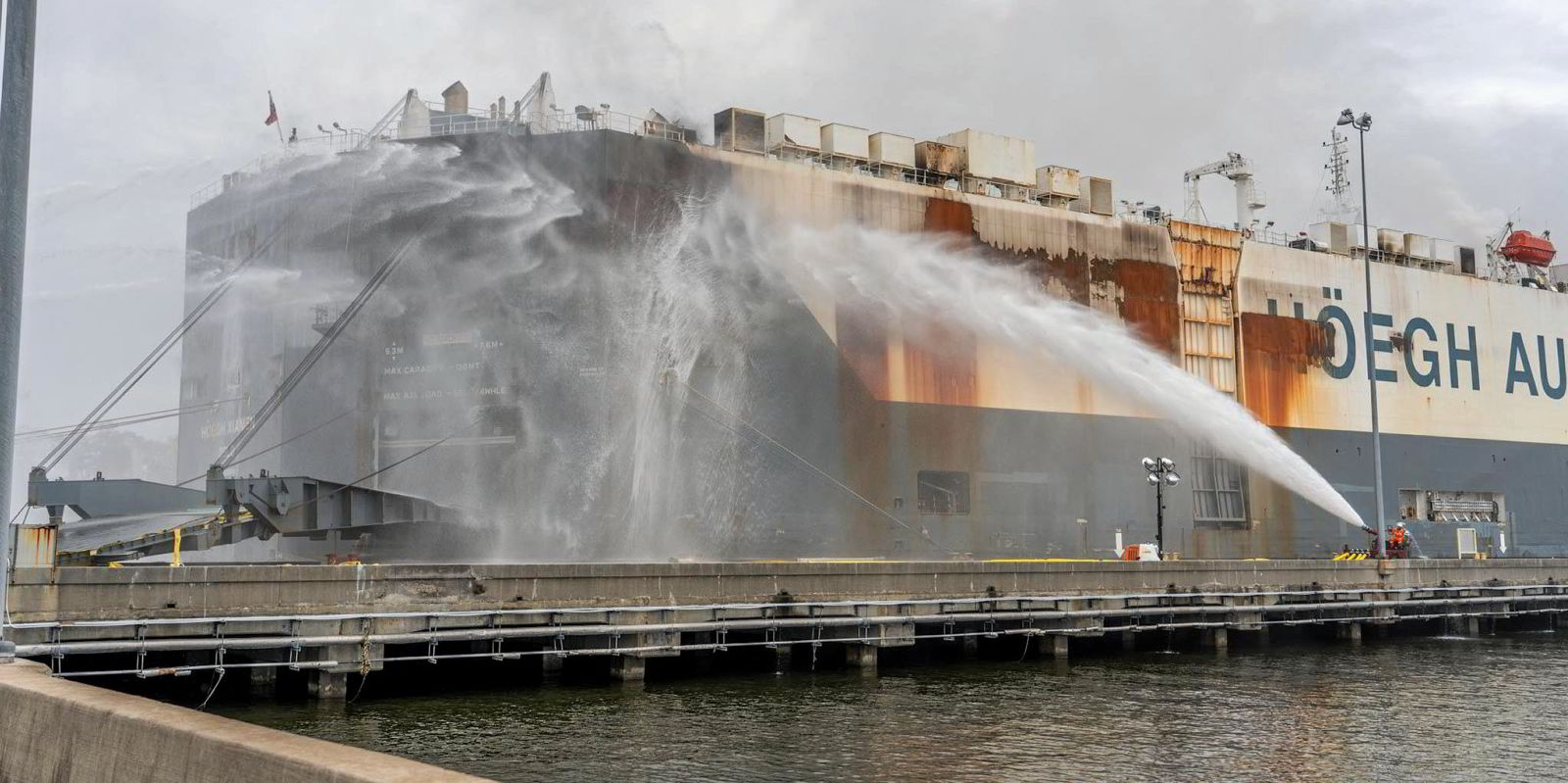
“At this point, we cannot speculate if additional training would have changed the outcome, but this decision moving forward will be based on data and evidence with the goal of preventing further loss of life.
“This will be a discussion point moving forward for the Coast Guard and local fire departments to cooperatively decide upon through established task forces and partnerships to determine the best course of action.”
The Coast Guard ensures that ships have vessel response plans for handling fires on board, but it does not fight them, said Justin Harclerode, spokesman for the US House of Representative’s Transportation & Infrastructure Committee.
“I do not believe the Coast Guard has ever sought to add marine firefighting to its list of missions,” said Harclerode, whose committee provides federal funding to the Coast Guard.
“The Coast Guard has a broad responsibility to save lives at sea.”
He said Congress gives money to the Coast Guard for rescuing human lives, responding to oil spills, rendering port security, inspecting vessels and fighting illegal drug activity, but not for fighting ship fires.
“Fires at sea are infrequent, and it would be unlikely a cutter equipped with fire-fighting capability would be able to arrive in a timely manner,” Harclerode told TradeWinds.
“The ship’s crew, local fire departments and in some case port authority fire tugs are responsible for firefighting in ports with the assistance of the Coast Guard in establishing safety zones around the vessel in distress.”
The Federal Emergency Management Agency’s Port Security Grant Program provides $100m a year total to fire departments in US ports to fund training for ship fires and maintaining firefighting assets.
The programme has awarded $20.6m from 2007 to 2022 to the New Jersey Regional Fire Boat Task Force, a group of 12 fire departments that includes the Newark Fire Department.
It has also given $77m over the same period to the Fire Department of New York, which has had a 40-metre-long ship simulator since 2014 that firefighters use to train to battle blazes on vessels.

In 2016, the fire department developed a Coast Guard-certified firefighting course that has used the simulator to train more than 29,000 firefighters on handling vessel fires.
But firefighters in all US ports could benefit from more comprehensive training on ship fires, said Jonathan Gutoff, a maritime law professor at Roger Williams University.
“People don’t realise just how different an environment it is from fighting fire on land because there’s no ventilation. That heat builds up very quickly,” he told TradeWinds.
“It could be more stringent.”
And Congress should provide funding to the Coast Guard so that it can fight ship fires, whether at sea or in port, he said.
“I think perhaps in an ideal world, Congress would be willing to fund maritime firefighting assets in every commercial port,” he said.
“I think the Coast Guard is somewhat underfunded, but that’s a bigger issue.”
Before World War II, the Coast Guard had fireboats in several ports, but the 1974 Federal Fire Prevention and Control Act delegated firefighting to local and state agencies, a spokesman told TradeWinds.
“However, the Coast Guard continued to remain a critical component in the fire protection community due to our authorities, responsibilities and development and enforcement of fire prevention regulations.”
